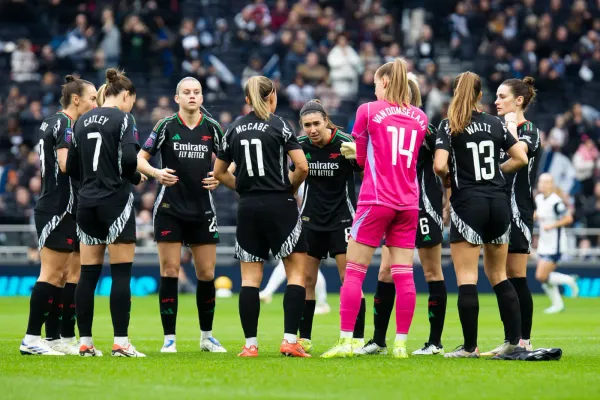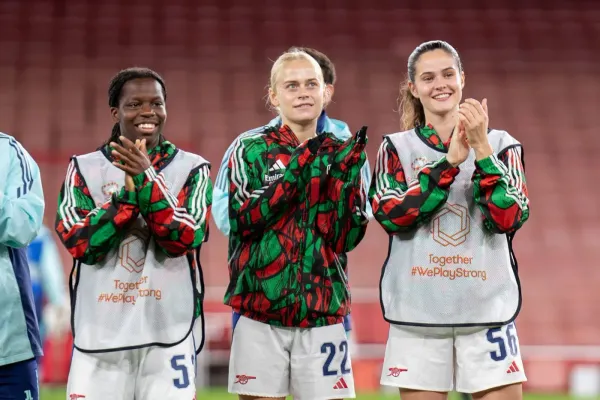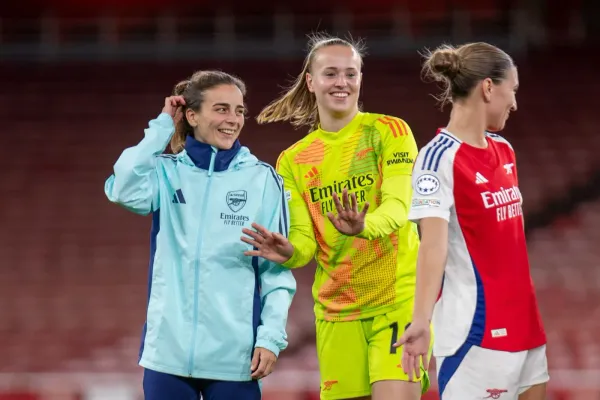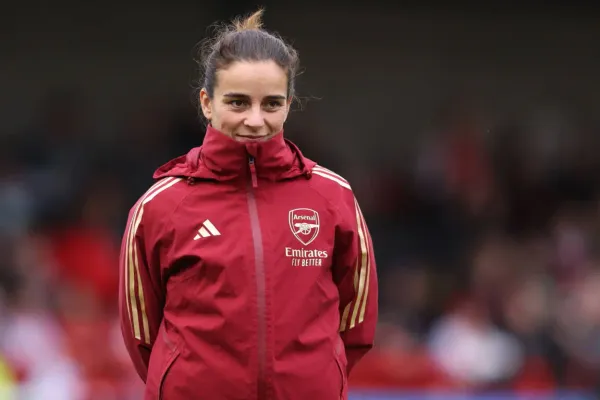Silly SZN
A ramble on Arsenal Women transfer reporting
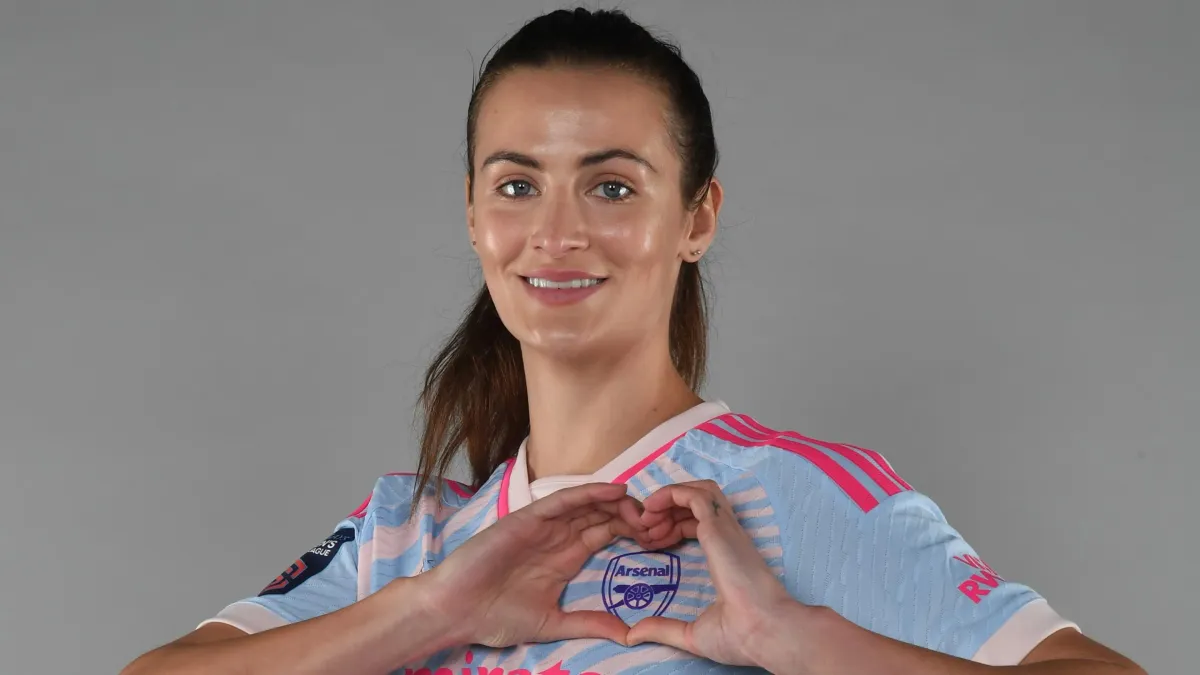
The first transfer I ever reported on for Arsenal Women was the signing of Fara Williams from Liverpool. I can’t remember exactly how I came by the information, I just remember that I wasn’t looking for it but came by it in a casual conversation. I had no experience of reporting on or ‘breaking’ a transfer before.
It proved to be a nerve wracking one for me, personally. This was a time when the WSL was still running to a summer schedule, so the majority of transfers happened in the New Year. I knew that Fara Williams had signed for Arsenal and I knew it from more than one person, so I reported it and hoped for the best.
I reported on it in December 2015. And Christmas came, and then went, then the New year came and there was still no announcement. I didn’t know why there was a delay and I grew incredibly nervous that I had messed up or been subject to some kind of practical joke.
I had DMs from fans asking me what was happening with the transfer and I honestly didn’t know. It was my first rodeo and I wasn’t really confident enough to check in with people. The transfer was eventually announced on 5 January, probably around three weeks after I had reported it and I was exceptionally relieved.
It turns out that Fara got married over that Christmas break and was on her honeymoon, so could not complete the club publicity for the signing confirmation until she returned. Of course, despite my nerves, there were a relatively small number of people that were interested in Arsenal Women transfers at that point. Even if I had really dropped the ball, I didn’t have a reputation to lose and not that many people would have noticed anyway.
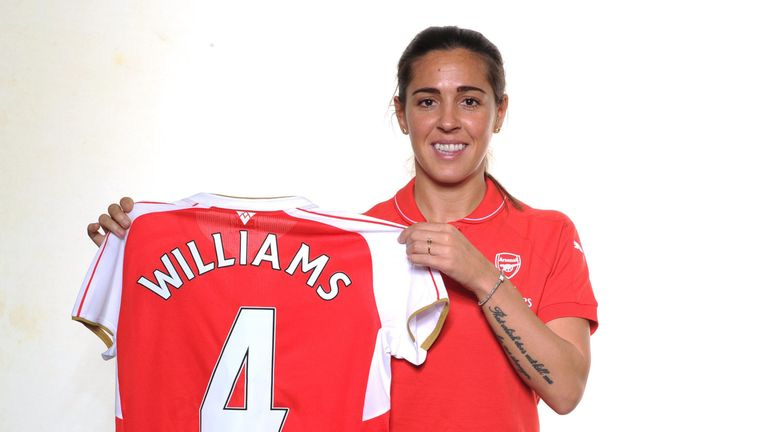
Something I read very often from this and previous generations of players is that they didn’t really have a plan for being footballers, simply because most of the current players didn’t even realise that being a women’s footballer was a career path at all. I recall Lisa Evans telling me that she knew she wanted to be a footballer as a kid but half assumed she would be able to play men’s football. She didn’t really have a plan or a vision for being a women’s footballer.
While I would never equate myself or my role with a player, I relate to that sentiment in the respect that I never for one minute thought writing about Arsenal Women would become such a significant part of my career. I didn’t go in with any sort of plan, I certainly didn’t plan to do any transfer reporting. I just wanted to write about the team, so I did and I didn’t think much beyond that.
All of my career plans revolved around writing about men’s football because there was a potential career path there. I didn’t think writing about the women’s team would be anything other than a pleasant side hustle that I enjoyed and Tony Leighton and Jen O’Neil were pretty much the only people I could see who wrote about women’s football. I believe that I have said in this newsletter before that I did not study journalism, I studied Literature at university. I wanted to be a writer, being a journalist didn’t really appeal to me in the same way.
The growth of the women’s game is something that has happened unexpectedly and, with it, I have had to adapt. (Let me be very honest with you, I am still learning on the job and trying to adapt). After the Fara Williams transfer, my confidence grew a little and I was able to come by information on Arsenal transfers. Not always, but often. There weren’t many other people looking for it, to be honest, so it was surprisingly easy initially. People were far less guarded about the information so it wasn’t difficult to extract.
I didn’t really report on transfers in a professional manner at all, in truth. The size of the audience didn’t really demand it and I didn’t know what I was doing anyway. Another thing I was able to do was to hold onto information until shortly before a signing announcement. I didn’t really have to consider whether anyone else might have it or might break it before us.
Now the landscape is different so there is ‘competition’ from other, well resourced publications as it were (and clearly, accuracy comes before speed, which is something you have to continue to adhere to when reporting, because it’s far worse being first and wrong than second and correct!) The level of interest in transfers has clearly grown in direct proportion with the level of interest in women’s football itself.
During the summer of 2022 and January 2023, I noticed a huge increase in both the volume and intensity of the interest around Arsenal’s transfers. Reporting on the Russo transfer last summer was a Supernova experience. I reported on this transfer far earlier than I had other transfers previously (with the exception of Fara Williams which I reported so far ahead of time by accident because I had no idea what I was doing).
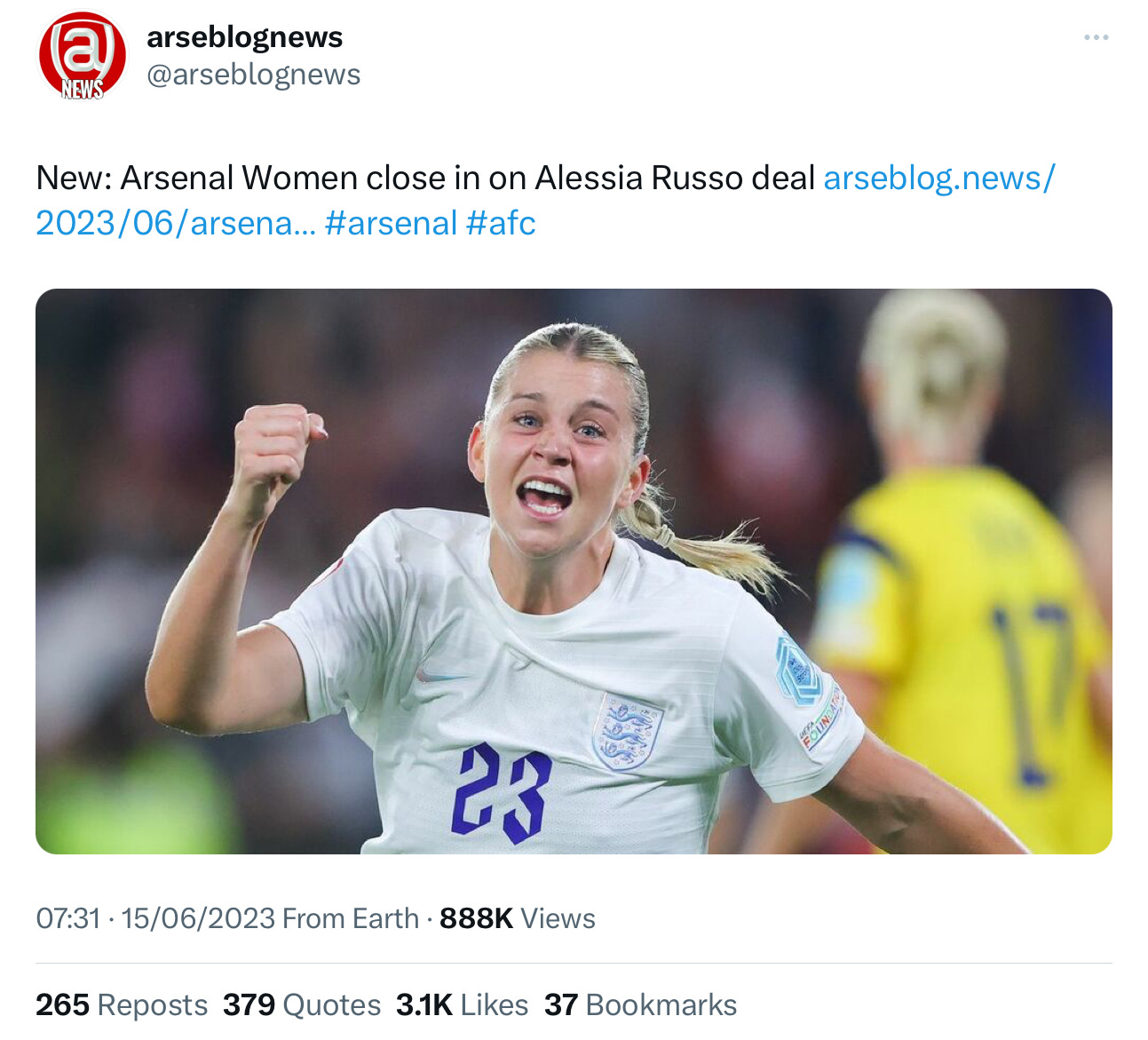
I did that because I knew my information was solid. I knew there was going to be a huge level of interest in the deal and because, for the first time, I felt ‘competitive’ about being first to the punch. I knew that if I had the information that I had, there was an excellent chance others would not be far behind. So we ran it on Arseblog News even though we knew an announcement was weeks away.
The changing, busier, media landscape around women’s football has made the reporting different. I’ve had to become more professional in my approach and, now, when I know something I tend to go with it. I don’t get every transfer straight away (and I won’t get every transfer in perpetuity, that’s for sure). With Russo and Emily Fox I knew early. With Kyra Cooney-Cross, for example, I went from knowing absolutely nothing about the deal to reporting it in the space of about two hours.
Every deal is different, reporting wise. The information comes from different places at different times and at different stages of the deal. It would be far easier if I had a ‘mole’ or one avenue for information but I would also have far less resilience in that scenario long-term. (If that person moves on, or stops talking to you, then the well of information runs dry). Pretty much every story is work, little falls into our laps (though, to be honest, sometimes you get lucky and it sort of does).
That this has happened is entirely an accident and a symptom of Arseblog’s longevity on the scene. When you stick around for a long time you get to know a lot of people and, before I knew it, I was in unwittingly part of this world that now has a lot of interest around it.
I feel strange about dispensing advice to budding journalists given that I am hardly Walter Cronkite but if I had one piece of advice, it would be ‘turn up and talk.’ Turn up to everything and talk to everyone, the vast majority of your conversations won’t lead anywhere fruitful or even particularly interesting but if you keep making that run in the penalty area, eventually the ball is going to fall for you in front of goal.
Eventually, we started to develop a reputation for reporting on transfers or having information and then you experience a sort of economies of scale effect, the more people know that you know some things, the more people tell you some things, so long as you prove that you are trustworthy and discrete. That far flung network means you can usually double or triple source information quickly. Though this is not always the case, sometimes you get initial information easily but finding a second source proves tricky. On occasion I have done joint reports with other journalists because we each have one solid (and different) source.
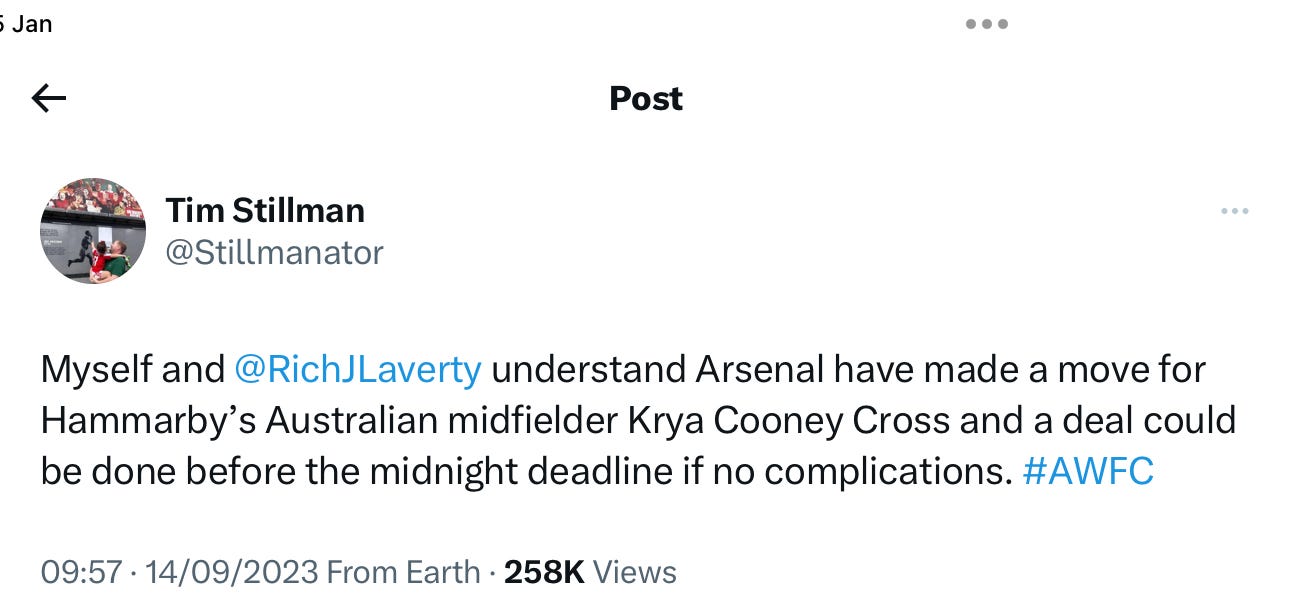
One of the most amusing fictions I see on twitter about our transfer reporting is that our information comes directly from Arsenal. No club wants anyone to have transfer information ahead of the announcement. Clubs understand and tolerate that it happens but a club voluntarily giving anyone information on their transfer dealings is the equivalent of a business giving away free money. Their preference would be that the club announcement is the first that anyone hears of a transfer.
The reputation we have cultivated for transfer reporting comes with a responsibility (being very careful what you say on social media, for example, because people will interpret all sorts of things you didn’t really mean) and with a pressure. But it’s a good, exciting pressure and now, when we break a transfer, the satisfaction is greater than ever because the interest is greater than ever.
And that’s also because we are realistic enough to know that women’s football is a growing business, publications are putting greater resource into it and the space is going to become more competitive, not less. Arseblog is a hugely successful site with a big audience but, clearly, we don’t have the overall resources that ‘the nationals’ have and, in the end, having a good level of resource but not the same level of resource as your immediate ‘competitors’ is probably the most Arsenal trait that we have.

